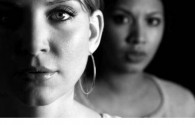Nicola Saunders
Job description: Psychotherapist at St Mungo's
Areas of interest: Mental health and wellbeing
Nicola Saunders's Recent Activity
"From working in counselling and psychotherapy services in substance use and primary care prior to my joining St Mungos, a significant number of women attending psychotherapy had experienced sexual abuse in childhood, and were or had in the past experienced abusive relationships as an adult. Over the 16 years I worked in a substance use counselling services, I only encountered two men who did not have an alcohol or drug problem who continued to live with women who were substance users. While many more women stayed with their male partners who were using and/or drinking, often experiencing family violence, having very little money and being left with the responsibility for caring for children.
Many women who have experienced early childhood trauma, such as sexual abuse, neglect or being in the care system, often get diagnosed with Borderline Personality Disorder. Many more women than men are given this diagnosis, & such a diagnosis can give the impression that there is something intrinsically wrong with the personalities of these women, which doesn’t takes into account the effects of their traumatic experiences. When women are unable to look after their children because of past trauma, mental health, substance use or domestic violence, this goes against the social norm of motherhood and they face harsher judgement than men in the same circumstance. Women are much more likely to sell sex for drugs, whilst men tend to deal to buy their own drugs.
I have encountered far more cases of self harm and eating disorders in women. On a social level women’s bodies are objectified and reflected back to them as how they ought to be and rather than how they are. This can lead to some women developing a problematic relationship to their own body – many women often say they do not like their body. Food is also a way to control emotions, to purge, binge or deprive themselves of food, this is similar with self harm too. Men act anger out in a different way and can be more likely to fight externally than against themselves.
Services can view women with complex needs as ‘out of control’ which may lead to a tendency for them to try and control women. This is unhelpful because these women have been so controlled throughout their life and relationships – it is useful to understand this as workers so we can provide a sense of safety in order that we may develop a working relationship through contained boundaries not by control.
I can remember some years ago in substance use services there were particular sessions for women and an acknowledgement of their specific needs. It does seem there is less of this across all support sectors because of funding cuts. The past focus on equality of access including for women and BME groups seems to have diminished. There are particular issues for BME or refugee women trying to access mental health or substance use support.
I think one gap in MH provision for women is probably psycho-educational support. Some women can think that because they have depression or anxiety or other mental health issues that there is something inherently wrong with them. Through psych-educational work they have the opportunity to learn the impact trauma can have on people and why they might behave in certain ways."
Reply To: Mental health and wellbeing




